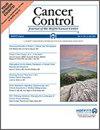A Retrospective Observational Study of Hyperthermic Intraperitoneal Chemotherapy for Gastric Cancer and Colorectal Cancer From a Single Center in the Recent 5 years
IF 2.5
4区 医学
Q3 ONCOLOGY
引用次数: 0
Abstract
ObjectiveTo retrospectively analyze the effect of hyperthermic intraperitoneal chemotherapy (HIPEC) on the progression free survival (PFS) of advanced gastric cancer (GC) and colorectal cancer (CRC).MethodWe retrospectively collected all the HIPEC data of GC and CRC in the Chongqing University Cancer Hospital from August 2018 to April 2023. Data were extracted from inpatient records and outpatient examination records. The IBM SPSS statistics 23.0 software was used to analyze the data. We mainly compared the PFS of HIPEC cases with that of non-HIPEC cases (both from our center and from the literature). PFS was analyzed with the Kaplan-Meier method. Log Rank (Mantel Cox), Breslow (Generalized Wilcoxon), and Tarone-Ware were used for univariate analyses.ResultA total of 342 HIPEC cases were analyzed in this study. Stage IV GC and CRC accounted for 48.5% of the total number of cases. Abdominal pain and distension (47.4%) were the most common side effects from HIPEC. Serious complications were rare (1.8%, including bleeding, perforation, obstruction, and death). The PFS and disease-free survival (DFS) of abdominal malignancy treated with HIPEC were significantly associated with the TNM stage, but not HIPEC numbers nor HIPEC drugs. In stage IV HIPEC cases, adding adjuvant chemotherapy after HIPEC resulted in better PFS. In addition, the association between peritoneal carcinomatosis index (PCI) and PFS of stage IV HIPEC cases was close to significant. Compared with the 33 stage IV (with peritoneal metastases) GC cases without HIPEC in our center from the last 15 years, the PFS of the 56 stage Ⅳ GC cases with HIPEC was not improved significantly (median PFS: 6 ± 2.92 months vs 7 ± 1.63 months for with vs without HIPEC in stage IV GC, respectively; P ≥ 0.05). Compared with the 58 stage IV (with peritoneal metastases) CRC cases without HIPEC in our center from the last 15 years, the PFS of the 86 stage IV CRC cases with HIPEC was not improved significantly either (median PFS: 7 ± 1.68 months vs 7 ± 0.62 months for with vs without HIPEC in stage IV CRC, respectively; P ≥ 0.05). When comparing our HIPEC data with the non-HIPEC data reported by other scholars for the PFS of advanced GC and CRC, the negative results were similar.ConclusionThe PFS/DFS of HIPEC cases was associated with the TNM stage, but not with the HIPEC numbers or HIPEC drugs. PCI may be related to the PFS of stage IV HIPEC cases. Adding chemotherapy or targeted therapy after HIPEC may improve the PFS of stage IV cases. HIPEC did not significantly improve the PFS of stage IV GC or CRC cases in our center.单个中心近 5 年来对胃癌和结直肠癌腹腔内热化疗的回顾性观察研究
目的回顾性分析热疗腹腔化疗(HIPEC)对晚期胃癌(GC)和结直肠癌(CRC)无进展生存期(PFS)的影响。方法回顾性收集重庆大学附属肿瘤医院2018年8月至2023年4月所有GC和CRC的HIPEC数据。数据来源于住院病历和门诊检查记录。采用IBM SPSS统计23.0软件对数据进行分析。我们主要比较了HIPEC病例与非HIPEC病例(包括本中心病例和文献)的PFS。PFS采用Kaplan-Meier法进行分析。本研究共分析了 342 例 HIPEC 病例。IV 期 GC 和 CRC 占病例总数的 48.5%。腹痛和腹胀(47.4%)是 HIPEC 最常见的副作用。严重并发症很少见(1.8%,包括出血、穿孔、梗阻和死亡)。接受HIPEC治疗的腹部恶性肿瘤的PFS和无病生存期(DFS)与TNM分期显著相关,但与HIPEC次数和HIPEC药物无关。在 IV 期 HIPEC 病例中,HIPEC 后增加辅助化疗可提高 PFS。此外,腹膜癌变指数(PCI)与IV期HIPEC病例的PFS之间的关系接近显著。与本中心过去15年中未行HIPEC治疗的33例Ⅳ期(有腹膜转移)GC病例相比,行HIPEC治疗的56例Ⅳ期GC病例的PFS无明显改善(Ⅳ期GC行HIPEC治疗与未行HIPEC治疗的中位PFS分别为(6±2.92)个月与(7±1.63)个月;P≥0.05)。与本中心过去15年中58例未接受HIPEC治疗的IV期(有腹膜转移)CRC病例相比,86例接受HIPEC治疗的IV期CRC病例的PFS也没有明显改善(IV期CRC接受与未接受HIPEC治疗的中位PFS分别为7±1.68个月与7±0.62个月;P≥0.05)。结论HIPEC病例的PFS/DFS与TNM分期有关,但与HIPEC次数或HIPEC药物无关。PCI可能与IV期HIPEC病例的PFS有关。在HIPEC后增加化疗或靶向治疗可改善IV期病例的PFS。在本中心,HIPEC并未明显改善IV期GC或CRC病例的PFS。
本文章由计算机程序翻译,如有差异,请以英文原文为准。
求助全文
约1分钟内获得全文
求助全文
来源期刊

Cancer Control
ONCOLOGY-
CiteScore
3.80
自引率
0.00%
发文量
148
审稿时长
>12 weeks
期刊介绍:
Cancer Control is a JCR-ranked, peer-reviewed open access journal whose mission is to advance the prevention, detection, diagnosis, treatment, and palliative care of cancer by enabling researchers, doctors, policymakers, and other healthcare professionals to freely share research along the cancer control continuum. Our vision is a world where gold-standard cancer care is the norm, not the exception.
 求助内容:
求助内容: 应助结果提醒方式:
应助结果提醒方式:


